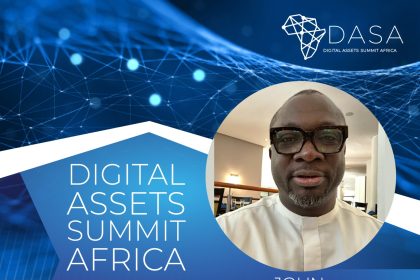Last week, Ghana’s Vice President Bawumia made comments at the 14th Commonwealth Regional Conference about pushing Ghana to be powered by Blockchain technology.
Blockchain technology, a system of recording information in a way that makes it difficult or impossible to change, hack, or cheat the system, is being eyed by many governments as a solution to improve transparency, efficiency, and trust in information management.
This move represents a significant step forward in digital governance, but it also brings a set of challenges that need to be addressed.
Benefits of Blockchain Technology
The use of Blockchain’s decentralized technology and processes can eliminate the need for intermediaries in government transactions, leading to significant efficiency gains and cost savings.
By automating many manual processes, blockchain can reduce bureaucratic red tape and accelerate service delivery, allowing governments to focus on strategic initiatives rather than administrative tasks
Every transaction on a blockchain is recorded on a public ledger, providing an immutable and transparent record. This level of transparency can significantly reduce corruption and increase trust between the government and its citizens.
Case Study: Estonia

Estonia has been a pioneer in implementing blockchain technology at the national level.
They have integrated blockchain to secure health records, and judicial, legislative, security, and commercial code systems, amongst others.
Challenges of Putting Government Operations On The Blockchain
Compute Power
One of the primary challenges is the technological infrastructure required to implement blockchain on a governmental scale. Blockchain systems require a significant amount of computational power and energy, which can be a hurdle for a country where energy resources are already stretched thin.
Additionally, the lack of international norms or laws regarding blockchain technology can create uncertainty and hinder its adoption.
Digital Literacy
Another challenge is the digital literacy and technical expertise needed to manage and maintain blockchain systems.

While Ghana has made strides in digitalization, with the Vice President stating that most of all government agencies have been onboarded onto the digital platform Ghana.gov, there is still a need for skilled professionals who can navigate the complexities of blockchain technology.
High Cost of Implementation
Moreover, the cost of implementing blockchain technology is not insignificant. It requires investment in both hardware and software, as well as training for personnel.
For a developing country like Ghana, these costs must be weighed against other pressing economic needs.
With Ghana currently in agreement with the IMF for a $3 billion loan and the state of the economy, the implementation of blockchain for government operations doesn’t seem like a project to undertake in the near future.
Catch up on news and other tidbits on our WhatsApp Community Page, Twitter/X, and subscribe to our weekly newsletter to ensure you don’t miss out on any news.










